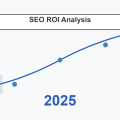So, to put it simply, if you get PHP right, it can be a powerful tool closely related to SEO.
Through hundreds of WordPress sites, I will teach you how to make your PHP site the best it can be for search engines from 2025.
Key Initial Steps
The first step with any PHP site is to do these core things. Once that is out of the way, we can begin making minor tweaks to optimise for speed and SEO.
Deciding on the Correct Hosting Agent
Your hosting choice affects your site speed, uptime, and security. Look for:
- Your site speed, uptime, and security depend on the hosting you use. See:
- Dependable uptime (99.9%)
- Quick reply times from servers
- Frequent backups
- Good security elements
- Excellent technical support
Standard PowerShell Settings for WordPress
First, fix these often-overlooked settings:
- Under Settings > Reading, go to
- Make sure “Discourage search engines” is unchecked.
- Under Settings > Permalinks, go to
- Use a “Post name” framework.
- Proceed to Settings > In general
- Set accurate site title and tagline
- Make sure the timezone is accurate.
Basic plugins for SEO in WordPress
Although you won’t need hundreds of plugins, several are really vital:
SEO Plugin
Choose one of these:
- Rank Math (my current preference)
- Yoast SEO
- All in One SEO
Don’t install multiple SEO plugins—choose one and stick with it.
Performance Plugins
Essential for speed:
- Caching plugin (WP Rocket or LiteSpeed Cache)
- Image optimization plugin
- Minification tool
Technical Optimisation
Speed Optimisation
Site speed is vital for users as well as for search engines:
Image Enhancement
Compressing files before uploading images onto your site is something that can be done to improve performance.
Compress files so load times on your web page are shorter. Use only pictures that will exactly fill out your layout.
Find a way to load pictures lazily, so that it isn’t until people stop for them that they begin appearing one by one and then quickly load all at once.
Use the WebP format for better image quality with smaller file sizes, and faster user experiences.
Caching Setup
One way to increase overall website performance is by caching. Both page and browser caching help speed up interaction with sites while at the same time reducing server strain.
Fast-loading websites not only attract more traffic than an ad-laden one but are also easier on your server in general.
Fundamental Web Vitals Focus on:
- Largest Contentful Paint (LCP)
- First Input Delay (FID)
- Cumulative Layout Shift (CLS)
Mobile Enhancement
With mobile-first indexing, ensure:
- Responsive design
- Touch-friendly elements
- Fast mobile loading
- Clear mobile navigation
Content Structure
URL Structure
Create clean, logical URLs:
- Use categories wisely
- Keep URLs short
- Include target keywords
- Avoid special characters
Internal Linking
Build a solid structure:
- Link related content
- Use descriptive anchor text
- Create content clusters
- Maintain link hierarchy
Content Arrangement
Implement:
- Clear categories
- Relevant tags
- Logical menus
- Breadcrumb navigation
On-Page SEO Components
Title Marks
For every page and post:
- Include target keyword
- Keep under 60 characters
- Make it compelling
- Be descriptive
Meta Keyword Descriptions
Create unique descriptions:
- Include key benefits
- Call to action
- 150-160 characters
- Natural language
Header Tags
Proper hierarchy:
- One H1 per page
- Logical H2-H6 use
- Include keywords naturally
- Structure content clearly
Content Building
Quality Content Guidelines
Remember to stay focused on user intent when creating quality content.
Throughout the draft process, work out a detailed outline and fill in as many details to your outlines that you can think of.
Long before you decide to publish your work, sit down and re-read it to see what another pair of eyes feels or anything else to look for.
In order to carry out all objectives, maintain a clean structure in each section.
While you may need to cover a certain topic in-depth, don’t be afraid of making your copy long.
Update content regularly so that it stays accurate and relevant.
Tips for WordPress Editors
With content of high quality, user intent should always be kept in mind.
Go in-depth on key topics, keep a clean structure so people can skim, and update content regularly so that it stays relevant and accurate.
Write quality, relevant content that naturally combines your keywords—this builds user interaction and improves your SEO results.
Gutenberg uses blocks to help you structure content properly.
Develop reusable sections so that you don’t waste time, chunk the text to make it easy to read, and ride on multimedia to prevent the reader from scrolling away.
They improve the look and functionality of your website and make managing your content easier.
Image Optimisation
Image optimal procedures
Before uploading:
- Descriptive file names
- Proper sizing
- Image compression
- Format selection
Alt Text
For every image, add descriptive text that clearly explains its content.
Include keywords naturally to improve SEO without overloading the text.
Be specific about what the image shows to provide context and make it more useful for both users and search engines.
Advanced WordPress SEO
Mark-up schema
Implement:
- Organisation schema
- Article schema
- Product schema (if applicable)
- Local business schema
XML Sitemap
Ensure proper setup:
- Include important pages
- Exclude unnecessary content
- Regular updates
- Submit to search consoles
Maintenance and Security
Consistent Maintenance
Schedule:
- Weekly updates
- Monthly backups
- Quarterly audits
- Annual reviews
Safety Strategies
Implement:
- Strong passwords
- Security plugin
- Regular updates
- Backup system
Performance Track-of- Reference
Analytics Setup
Configure:
- Google Analytics
- Search Console
- Site monitoring
- Error tracking
Regular Checks
Monitor:
- Core Web Vitals
- Mobile usability
- Crawl errors
- Site speed
Local SEO for WordPress
Local Optimization
If suitable:
- Location pages
- Area-specific content
- Local schema
- Address consistency
Maps Integration
Include:
- Embedded maps
- Directions
- Service areas
- Location details
E-commerce SEO (should it be necessary)
WooCommerce Optimization
Focus on:
- Product descriptions
- Category optimization
- Review systems
- Product schema
Shopping maximization
Implement:
- Rich snippets
- Price markup
- Availability status
- Product variants
The incorporation for Social Media
Social Transmission
Set up:
- Share buttons
- Open Graph tags
- Twitter cards
- Social schema
Social Profiles
Link to:
- Business profiles
- Social feeds
- Review platforms
- Industry networks
Ongoing Optimization
Frequent Reports
Maintain:
- Fresh content
- Updated plugins
- Current themes
- Latest WordPress version
The schedule for content
Plan:
- Regular posts
- Content updates
- Seasonal content
- News coverage
Typical HTML SEO Errors with WordPress
Steer Clear of These Problems
Watch out for:
- Multiple SEO plugins
- Duplicate content
- Broken links
- Poor hosting
Best Practices
Always:
- Monitor performance
- Check mobile display
- Update regularly
- Backup frequently
Future-Proofing
Stay Current
Keep up with:
- WordPress updates
- SEO trends
- Google guidelines
- Industry changes
Prepare for Changes
Be ready for:
- Algorithm updates
- Technology changes
- User behavior shifts
- New features
Final Recommendations
Focus on these priorities:
- Technical foundation
- Quality content
- User experience
- Regular maintenance
Remember:
- SEO is ongoing
- Monitor results
- Adjust strategies
- Stay updated
If you maintain and pursue, with what is already a very large advantage—the WordPress platform now has software like search programs for free—search engines like Google don’t know which “firstmansstand” is real or phishing ground.
The web will intensify these initial stages of survival of the fittest.
The problem is to put it on a solid footing and keep it there. Then as you get more comfortable with the methods invoked for that purpose, progressively enhance what kind of SEO is done. Don’t launch everything at once or try to finish in one go!
It’s steady slogging that produces success with PHP SEO. Continually maintaining technical accuracy, concentrating on providing your users value, and keeping your rankings will display what you’ve worked as a reward of sorts for.
Please contact me for a free quote right now if you want to discuss your WordPress SEO.






